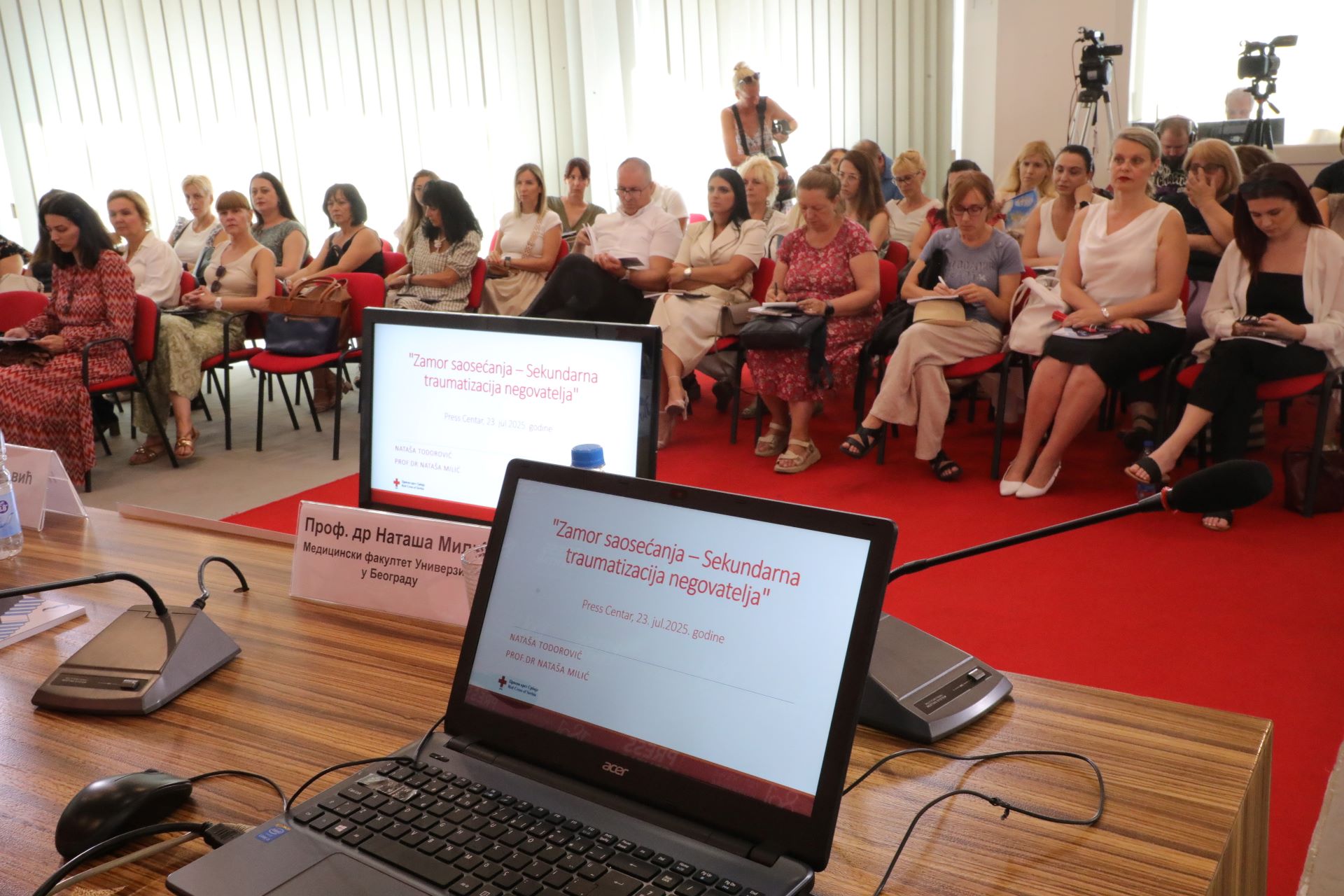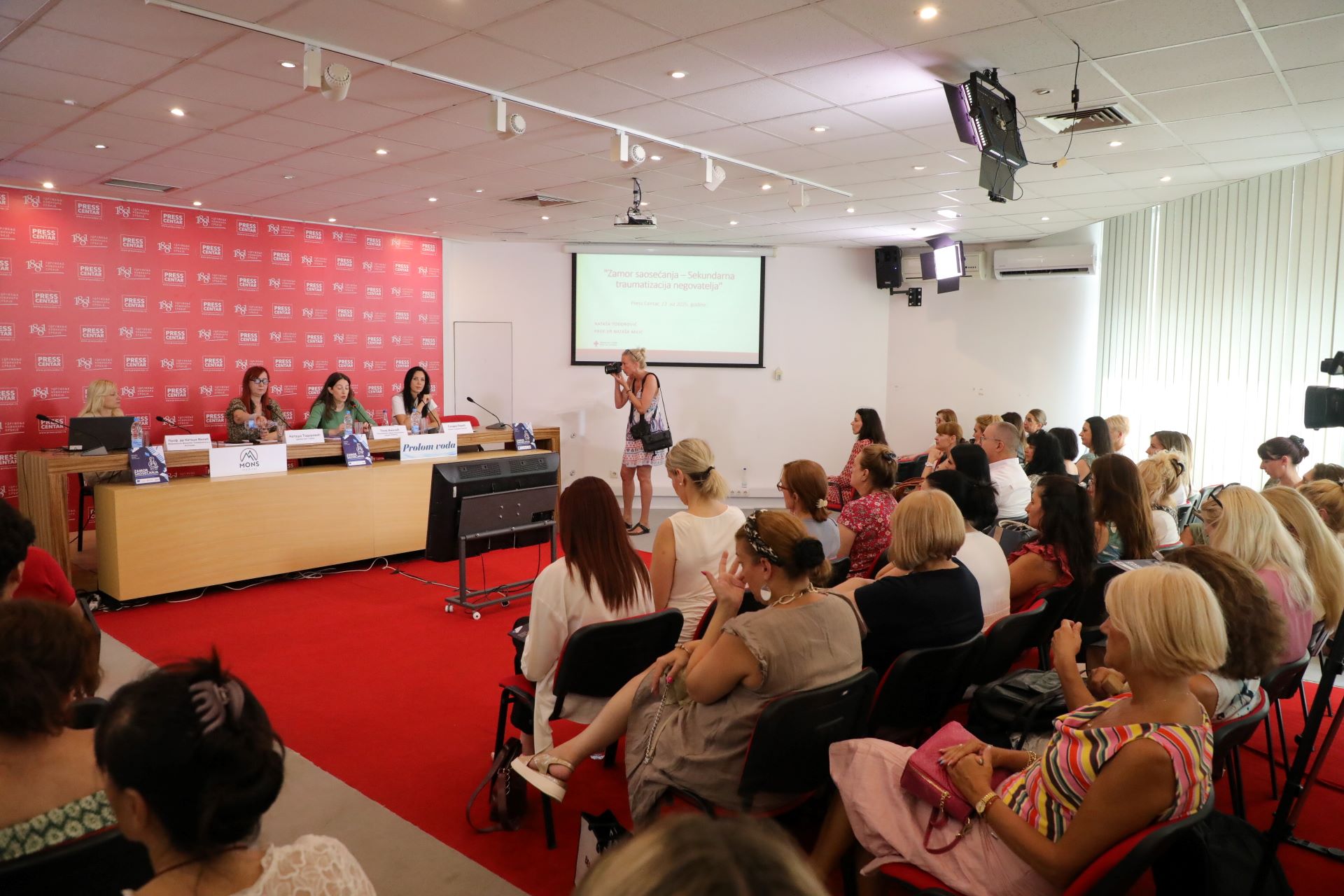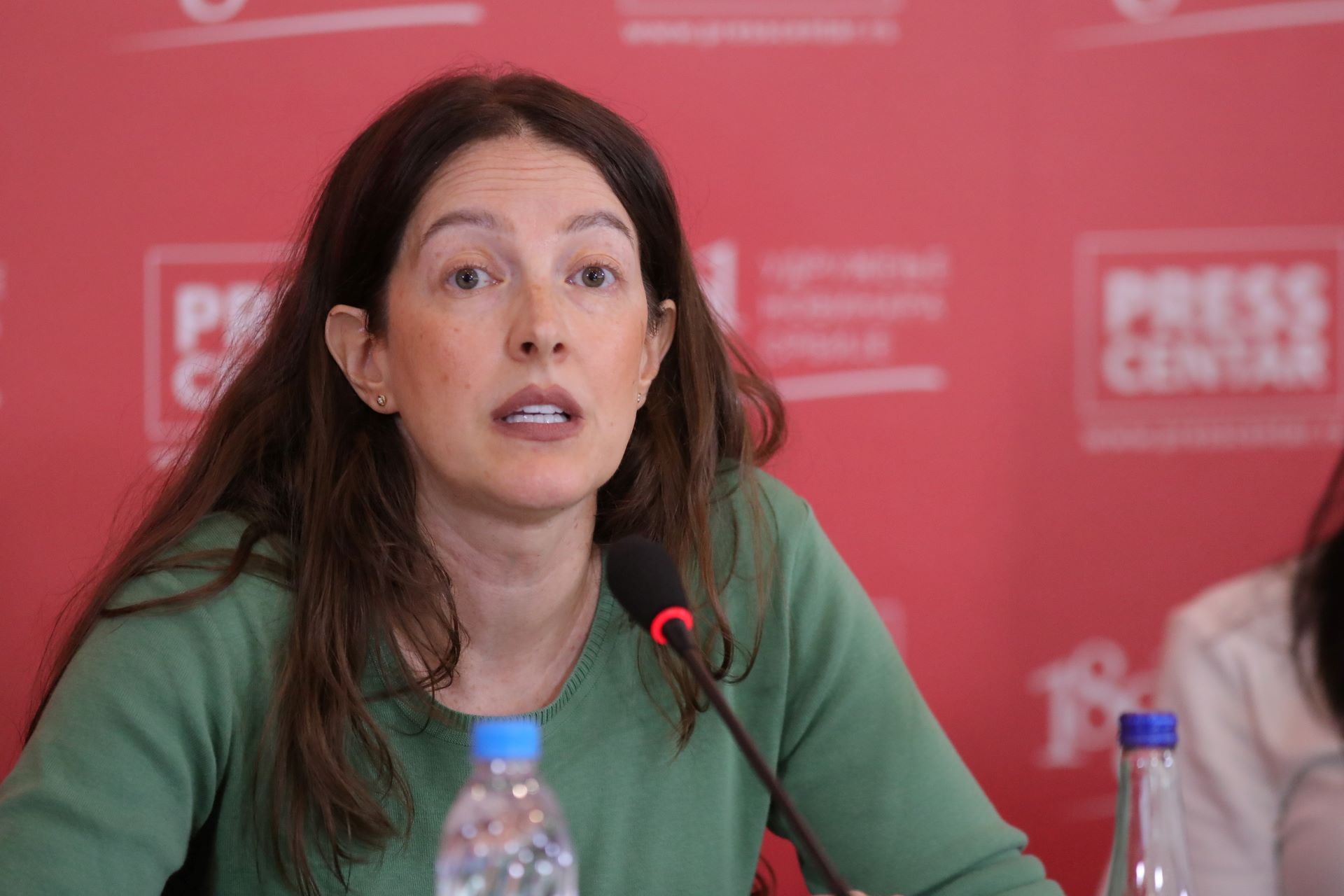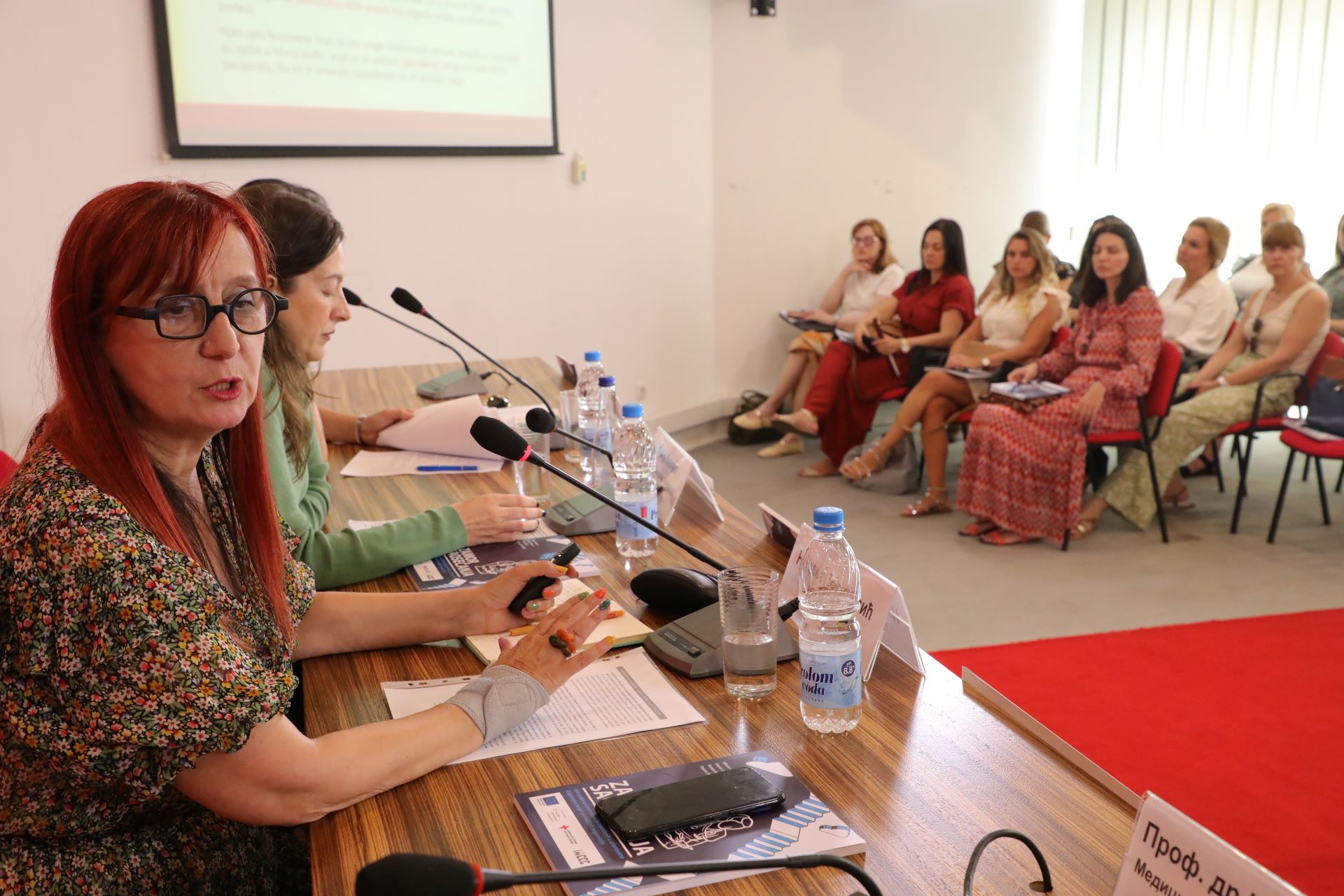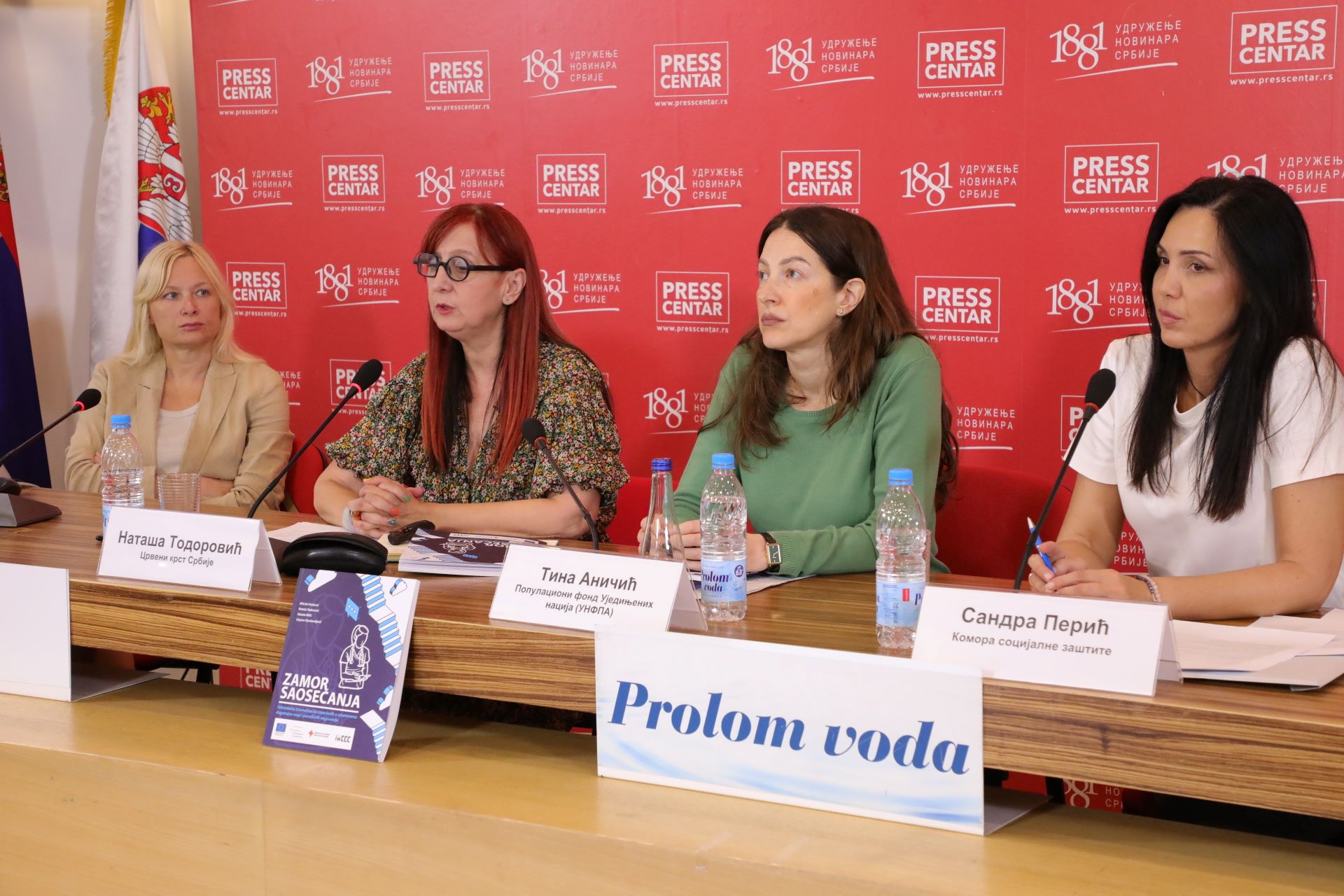Compassion Fatigue – Secondary Traumatization of Caregivers: Research Findings Presented

The Red Cross of Serbia and the Chamber of Social Protection presented the findings of the study “Compassion Fatigue: Secondary Traumatization of Employees in Long-Term Care Institutions and Family Caregivers”, conducted in 2024.
The phenomenon of compassion fatigue was explained by Natasa Todorovic from the Red Cross of Serbia, who emphasized that it refers to the emotional exhaustion of individuals who care for others – caregivers who are in daily contact with the suffering and trauma of others. Initially known as post-traumatic stress in caregivers, compassion fatigue is now recognized as a distinct issue and has been defined as “the cost of caring for others” (Charles Figley).
Natasa Todorovic stressed that compassion fatigue must be viewed in the broader context of contemporary challenges and transitions that societies are facing:
- Demographic transition – by 2030, 1.4 billion people will be aged 60 and over. In Serbia, by 2040, 24% of the population will be over the age of 65. Societies are also facing changes in family structures, such as delayed marriage, decisions to have only one child or none at all, and an increase in single parenthood. Older people in rural areas often face limited access to services and live in so-called “modern deserts.” Population migration leads to a reduced number of people available to provide care.
- Epidemiological transition – non-communicable diseases are increasingly becoming the main cause of disability and mortality, particularly among older persons.
- Transition of healthcare and care systems – existing care systems need to be adapted to meet the new needs and rights of the older population, as well as those who care for them.
These facts were the foundation for conducting the research, which included two groups of participants:
- 300 professionals employed in gerontology centers and residential homes for the elderly (physicians, nurses/technicians, and caregivers);
- 230 informal caregivers (170 women and 59 men) caring for elderly family members.
Prof. Dr. Natasa Milic from the Faculty of Medicine at the University of Belgrade presented the key findings: The majority of respondents reported moderate to high levels of compassion satisfaction – 49.0% to 50.0% among professionals and 72.2% among family caregivers.
At the same time, moderate levels of compassion fatigue were observed, as measured by the burnout subscale (58.3% and 67.4%) and the secondary traumatic stress subscale (57.3% and 64.2%). Only 1% of participants reported low levels of compassion satisfaction, and just 0.7% showed high levels of secondary traumatic stress. None of the participants exhibited high levels of burnout.
Tina Anicic, representative of the United Nations Population Fund (UNFPA), highlighted the importance of caring for older people and supporting those who care for them. She emphasized that UNFPA supports initiatives that aim to improve the quality of life of older people and strengthen systems that address demographic changes, with a special focus on human rights and equality.
Finally, Sandra Peric from the Chamber of Social Protection emphasized the importance of such research, particularly in shedding light on the challenges faced by professionals in the social protection system. She also announced a new study that will be conducted in cooperation with employees from centers for social work and the Red Cross of Serbia, with the goal of gaining deeper insight into and systematically addressing the issue of compassion fatigue among professionals working with vulnerable groups.
